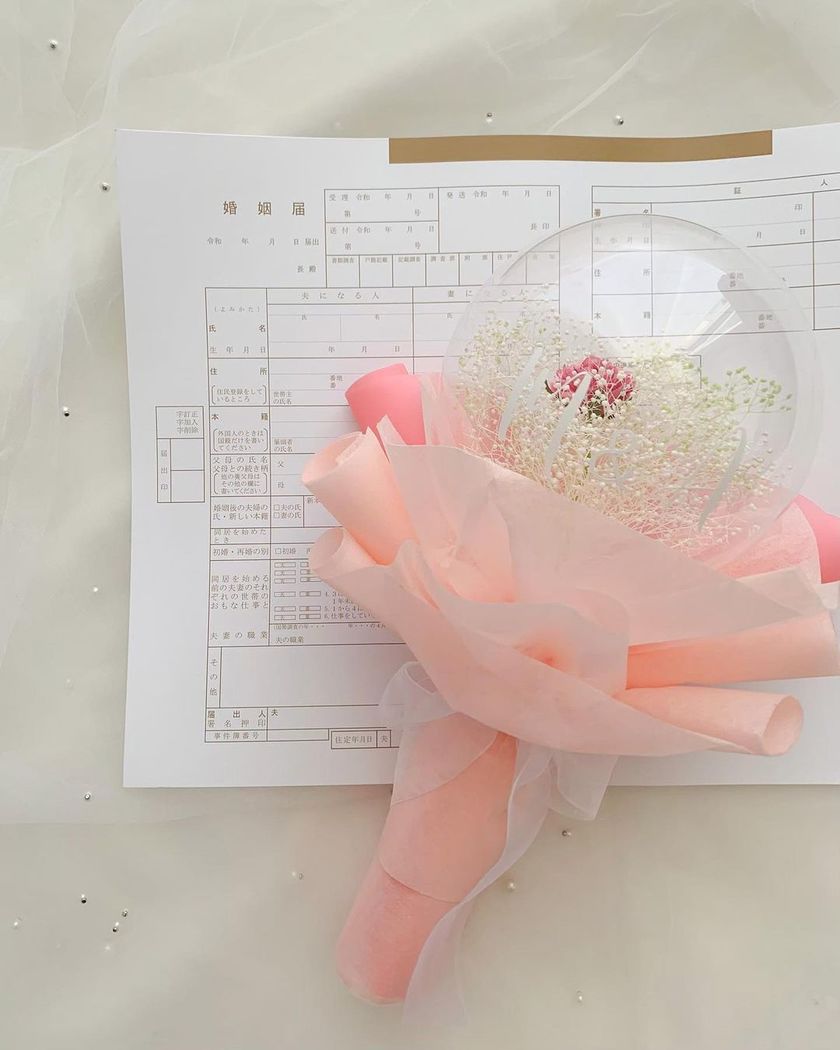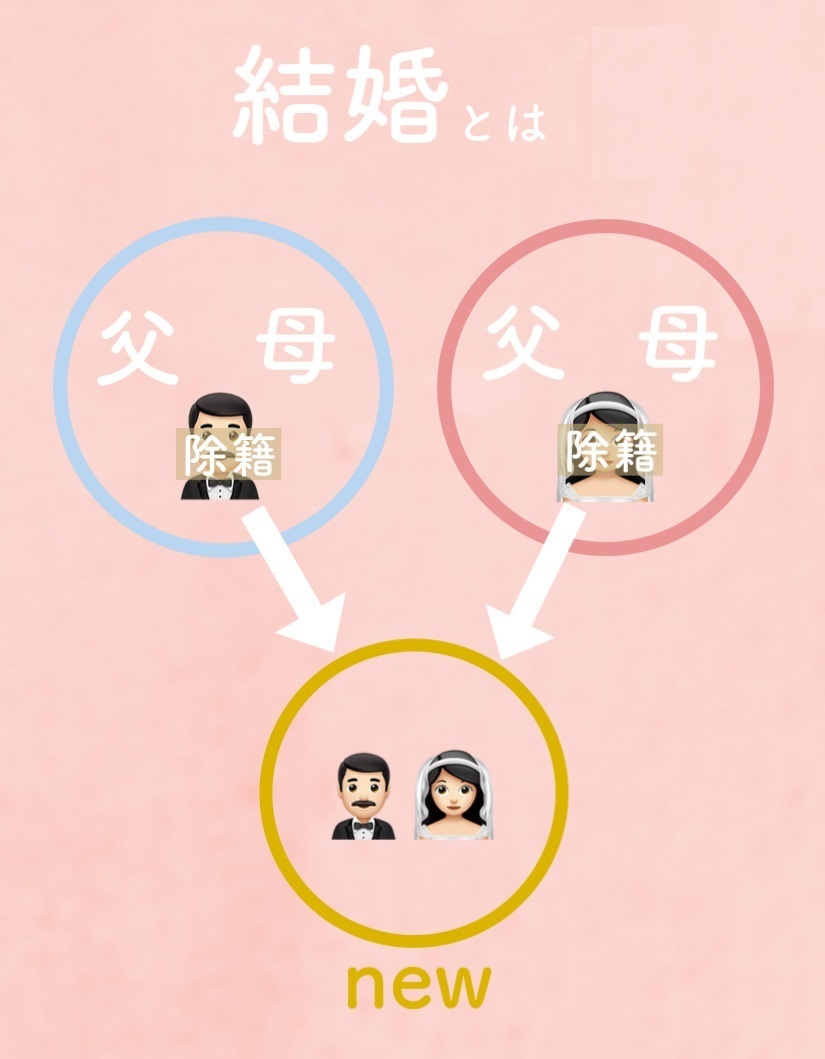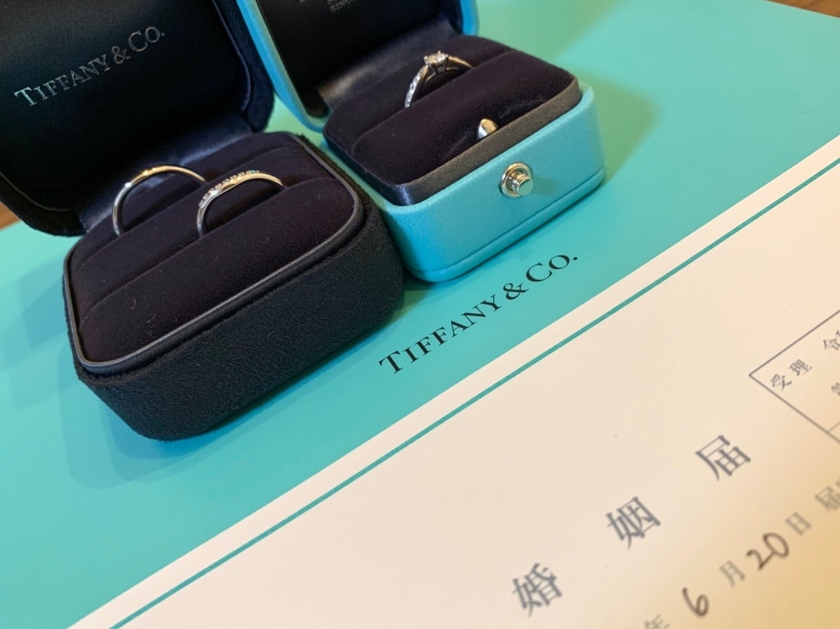
Are you using it without knowing? The phrase "I have registered my marriage" in marriage announcements is actually incorrect in Japanese!
2022.09.13 published
Commonly Heard, Seen, and Said Words...
The phrase "I registered my marriage," often heard when announcing a wedding.
On social media and in real conversations,
"My registration date is on Good Couple Day ♡"
"Today, on our 3rd anniversary, we registered our marriage!"
This phrase is commonly used when people submit their marriage registration and officially inform others that they have become a couple...
But did you know that using the phrase "I registered my marriage" has a different meaning than "I got married"?
The Strict Difference in Meaning between Registration and Marriage
The term "入籍" (nyūseki) is written with the kanji meaning to enter a family register.
"Entering the family register" refers to the act of "someone entering someone else's existing family register."
Therefore, it would be used in these situations:
✅ A man with a history of divorce who has already left his parents' family register remarrying and a woman entering his family register.
✅ Someone who has already left their parents' family register for some reason, and is registering as the head of their own family register when getting married.
✅ When a newborn child enters the parents' family register.
✅ When someone enters their adoptive parents' family register due to adoption.
***************************************
In contrast, the concept of marriage that we usually envision—established by submitting a marriage registration to authorities—means that...
"A couple leaves their parents' family register and creates a new family register together." (in cases where both are first-time marriages)
Thus, neither party is merely adding to an existing family register.
According to the above diagram, the rule is that "marriage = leaving the parents' family register and creating a new family register," which means that the phrase "入籍" (nyūseki) is not strictly accurate or appropriate in Japanese.
What Do Dictionaries Say?
However, given how widely the phrase is used in society (the hashtag "I registered my marriage" on Instagram has over 130,000 posts!),
if you look up "入籍" in the Weblio dictionary...
① It means entering an existing family register. For example, when a newborn enters their parents' family register or when someone enters their adoptive parents' family register through adoption.
Following that, it states:
② Colloquially, it refers to a couple submitting a marriage registration and thereby creating a new family register and entering it.
This means that expressing the concept of marriage by saying "to register my marriage" is considered a colloquial expression.
The idea that "I registered my marriage = I got married" is not strictly accurate, but it is widely understood and accepted in society.
Summary: Important Points to Remember
While many people use the phrase "I registered my marriage" to mean the same as getting married, it's important to know that this expression is not appropriate in Japanese for first-time marriages. It was quite an astonishing fact!
If you value the correctness of the Japanese language when announcing your marriage, it might be better to say:
✅ "I got married."
✅ "I submitted my marriage registration."
✅ "We became a couple."
However, since the meaning of ② is included in the Weblio dictionary, and it's a phrase that is commonly understood, I think it's a bit exaggerated to say, "It's incorrect to use 'I registered my marriage' to announce a wedding! It's strange Japanese!" Personally, I don’t mind if people use it around me in the future.
➡️ Download the marriage registration form from marry♡
➡️ Download a DIY marriage registration form here♡



![marry[マリー]](https://imgs.marry-xoxo.com/assets/marry_logo-e3a503203d635925f956631f4df079fe97f587ed360274455ead4fe26052b631.png)
 結婚式DIY
結婚式DIY
 ペーパーアイテム
ペーパーアイテム
 通販
通販
 ウェディングアイテム
ウェディングアイテム
 コラム
コラム
 ウェディングケーキ
ウェディングケーキ
 お金・節約
お金・節約
 髪型・メイク
髪型・メイク
 ドレス
ドレス
 和装
和装
 前撮り・ウェディングフォト
前撮り・ウェディングフォト
 靴・アクセサリー
靴・アクセサリー
 ブーケ
ブーケ
 挙式
挙式
 披露宴
披露宴
 ウェルカムスペース・装花
ウェルカムスペース・装花
 引き出物・ギフト
引き出物・ギフト
 BGM・ムービー
BGM・ムービー
 二次会
二次会
 ラブラブ結婚生活
ラブラブ結婚生活
 プロポーズ
プロポーズ
 顔合わせ・結納
顔合わせ・結納
 入籍
入籍
 式場探し
式場探し
 ハネムーン
ハネムーン
 ネイルアート
ネイルアート
 指輪
指輪
 美容
美容
 新郎
新郎
 両家家族(親族)
両家家族(親族)
 ゲスト
ゲスト
 韓国風
韓国風





